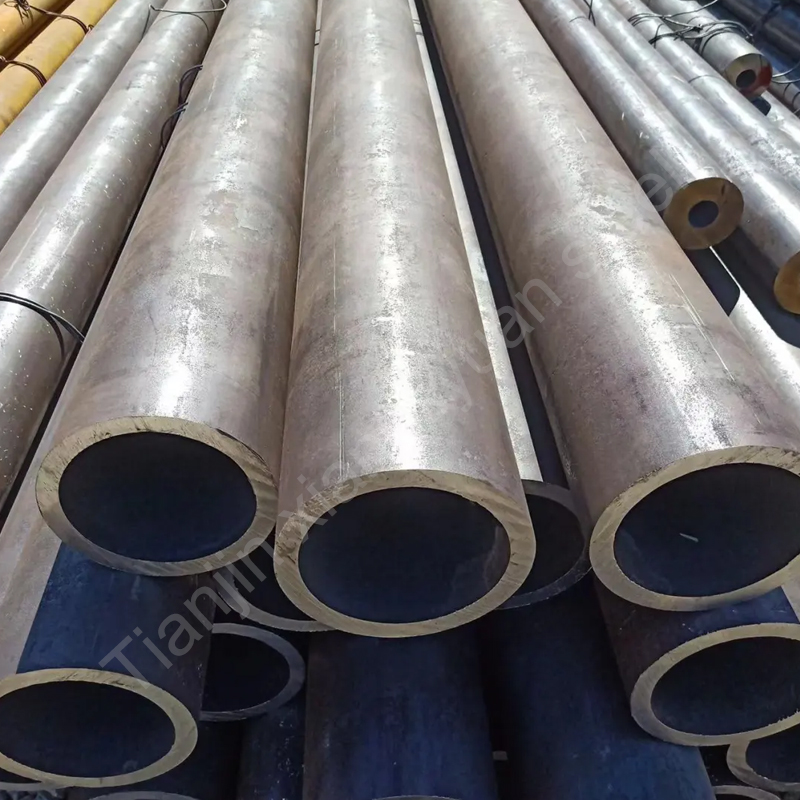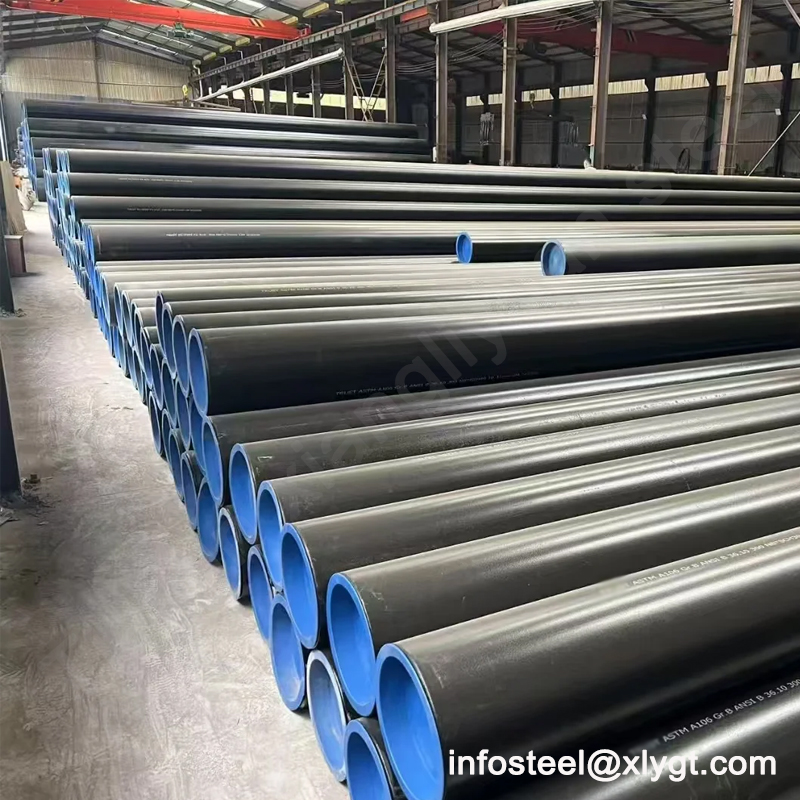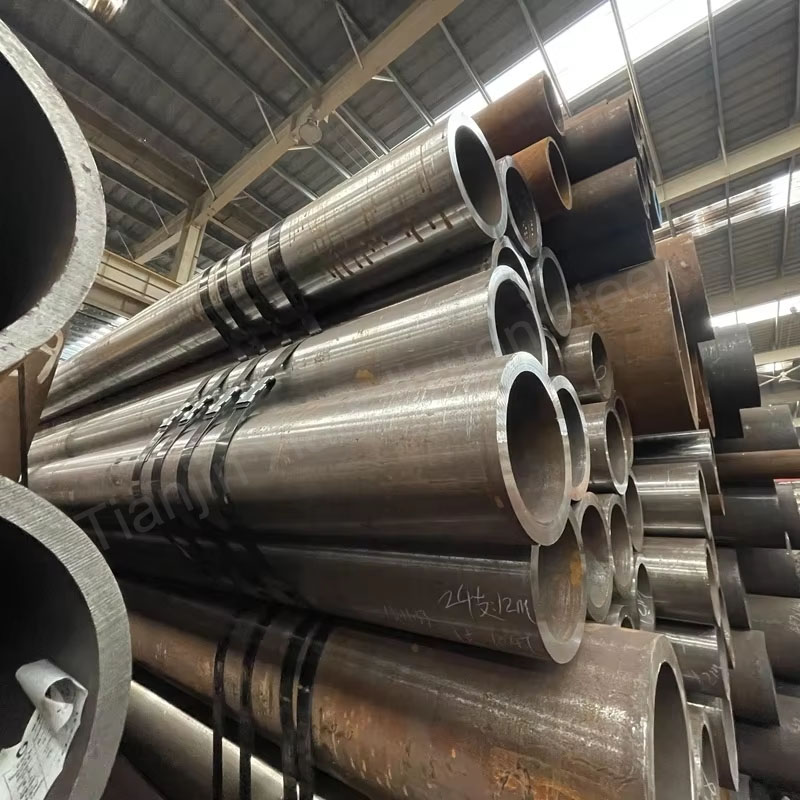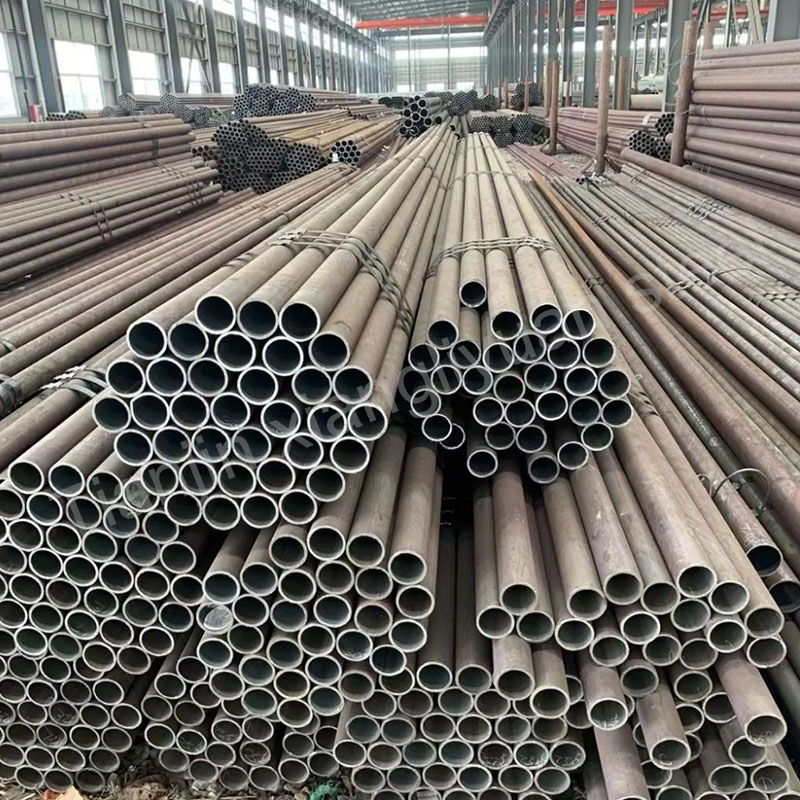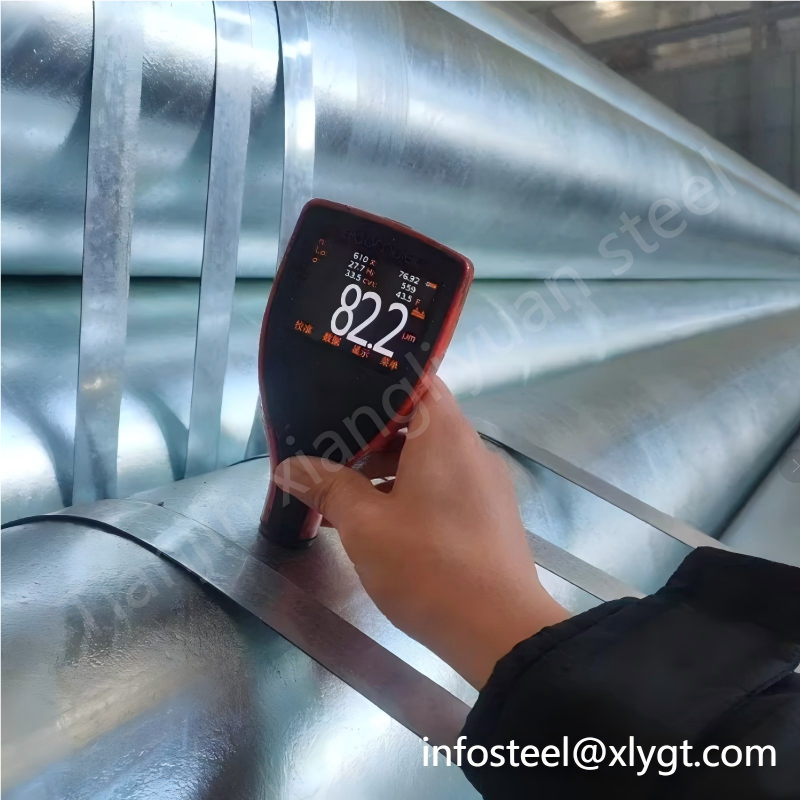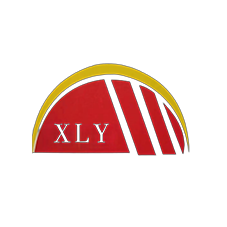Introduction to Petroleum Cracking Pipes
Petroleum cracking pipes, also known as oil cracking pipes, are specialized steel tubes designed for use in high-temperature and high-pressure environments within refineries, petrochemical plants, and chemical processing facilities. These pipes are critical components in processes like fluid catalytic cracking (FCC), delayed coking, and hydrocracking, where they transport hydrocarbons, steam, and corrosive gases. Their ability to withstand extreme conditions—such as temperatures exceeding 500°C (932°F) and exposure to sulfur compounds—makes them indispensable in modern industrial operations.
Key Materials and Steel Grades for Petroleum Cracking Pipes
The performance of petroleum cracking pipes hinges on their material composition. They are typically manufactured from heat-resistant and corrosion-resistant alloys to endure harsh operational environments. Below are the most common steel grades used:
1. ASTM Standards (USA)
ASTM A335 Gr. P5/P9/P11/P22/P91:
P5 (5Cr-0.5Mo): Ideal for moderate sulfur environments.
P9 (9Cr-1Mo): Offers superior oxidation resistance.
P11 (1.25Cr-0.5Mo-Si): Balances strength and weldability.
P22 (2.25Cr-1Mo): Widely used in FCC units.
P91 (9Cr-1Mo-V): High creep strength for ultra-high temperatures.
2. DIN Standards (Germany)
DIN 17175 15Mo3: A low-alloy steel for moderate heat resistance.
DIN 17175 13CrMo44: Chromium-molybdenum steel for high-pressure steam.
3. JIS Standards (Japan)
JIS G3458 STPA 25/26: Chromium-molybdenum pipes for cracking furnaces.
4. GB Standards (China)
GB/T 9948 12Cr1MoVG: Combines chromium, molybdenum, and vanadium for enhanced durability.
Classification of Petroleum Cracking Pipes
Oil cracking pipes are categorized based on manufacturing methods and end-use requirements:
1. Seamless vs. Welded Pipes
Seamless Pipes: Dominant in high-pressure applications due to uniform strength.
Welded Pipes: Cost-effective for low-to-medium pressure systems.
2. Process-Specific Types
FCC Transfer Lines: Handle catalyst-laden gases at 700–800°C.
Coker Pipes: Resist thermal cycling in delayed coking units.
Hydrocracker Pipes: Withstand hydrogen embrittlement and high pressures.
3. Surface Treatments
Aluminized Coating: Prevents oxidation in sulfur-rich environments.
Internal Cladding: Adds a corrosion-resistant layer (e.g., Inconel).
International Standards for Oil Cracking Pipes
Compliance with global standards ensures compatibility and safety.
| Standard | Region | Key Specifications |
|---|---|---|
| ASTM A335 | USA | Seamless ferritic alloy pipes for high temps |
| ASTM A312 | USA | Austenitic stainless steel (TP304/TP321) |
| DIN 17175 | Germany | Heat-resistant seamless tubes for boilers |
| JIS G3458 | Japan | Alloy steel pipes for elevated temps |
| GB/T 9948 | China | Seamless alloy pipes for petrochemical use |
| EN 10216-2 | Europe | Non-alloy/alloy steel tubes for pressure purposes |
Standard Dimensions and Specifications
Petroleum cracking pipes are available in a wide range of sizes to suit different industrial setups:
| Parameter | Range |
|---|---|
| Outer Diameter (OD) | 1/2″ to 24″ (12.7 mm to 610 mm) |
| Wall Thickness | 0.5 mm to 50 mm |
| Length | 6 m to 12 m (custom lengths available) |
Common Schedules: SCH 40, SCH 80, SCH 160, and XXS (extra strong).
Applications of Petroleum Cracking Pipes
These pipes are integral to critical processes across industries:
Refineries: Transporting cracked gases in FCC units.
Petrochemical Plants: Transferring ethylene, propylene, and steam.
Power Generation: Boiler systems and heat exchangers.
Chemical Processing: Handling aggressive acids and alkalis.
Why Choose High-Quality Oil Cracking Pipes?
Longevity: Resists scaling, creep, and thermal fatigue.
Safety: Minimizes leaks and failures in extreme conditions.
Cost Efficiency: Reduces downtime and maintenance costs.
Petroleum cracking pipes are engineered to meet the rigorous demands of modern hydrocarbon processing. By selecting materials like ASTM A335 P91 or DIN 17175 13CrMo44, adhering to international standards, and choosing the right dimensions, industries can ensure reliable and efficient operations.
For businesses seeking quality oil cracking pipes, working with a certified manufacturer ensures compliance with ASTM, DIN, JIS and GB specifications. Explore Tianjin Xiangliyuan Steel’s range of seamless and welded oil cracking pipes tailored to your specific needs.

